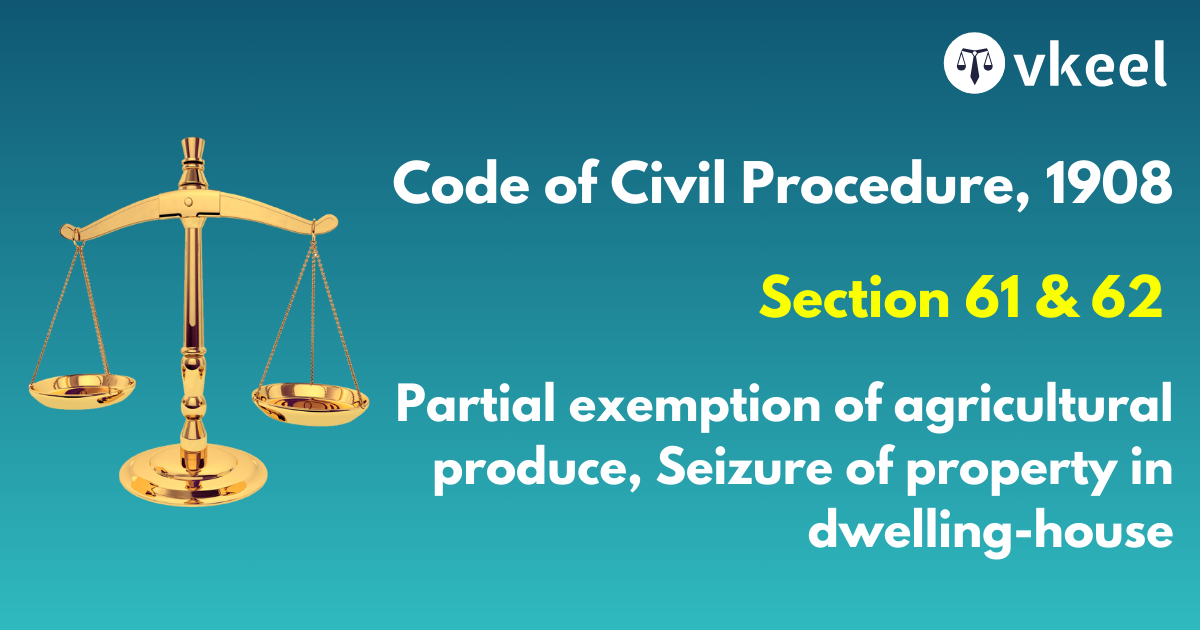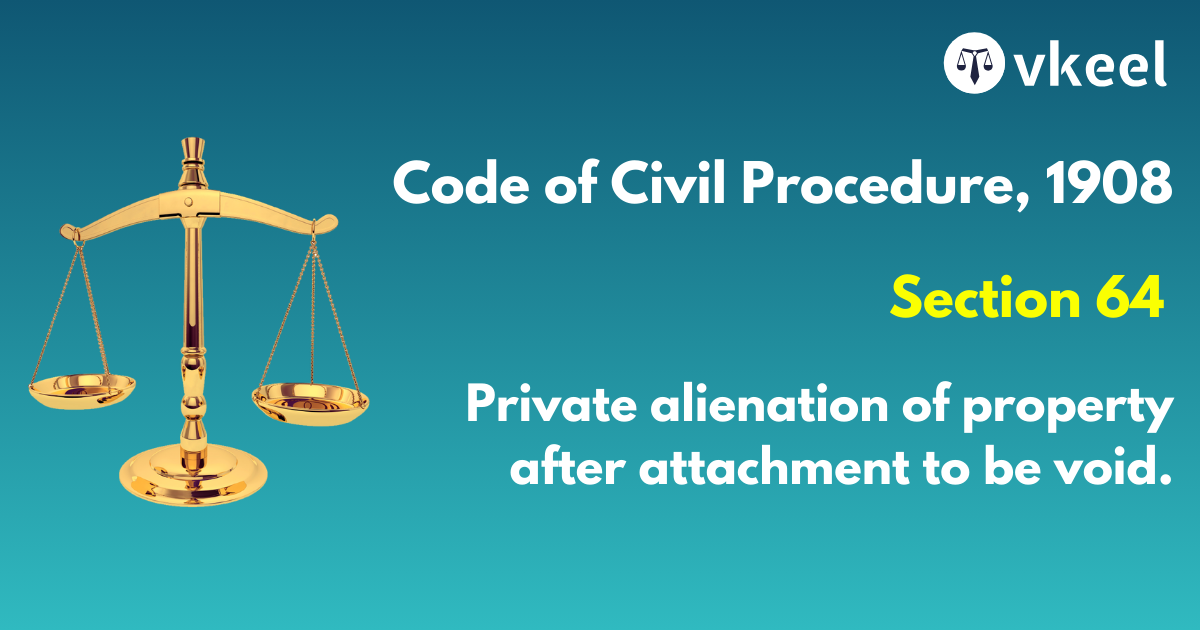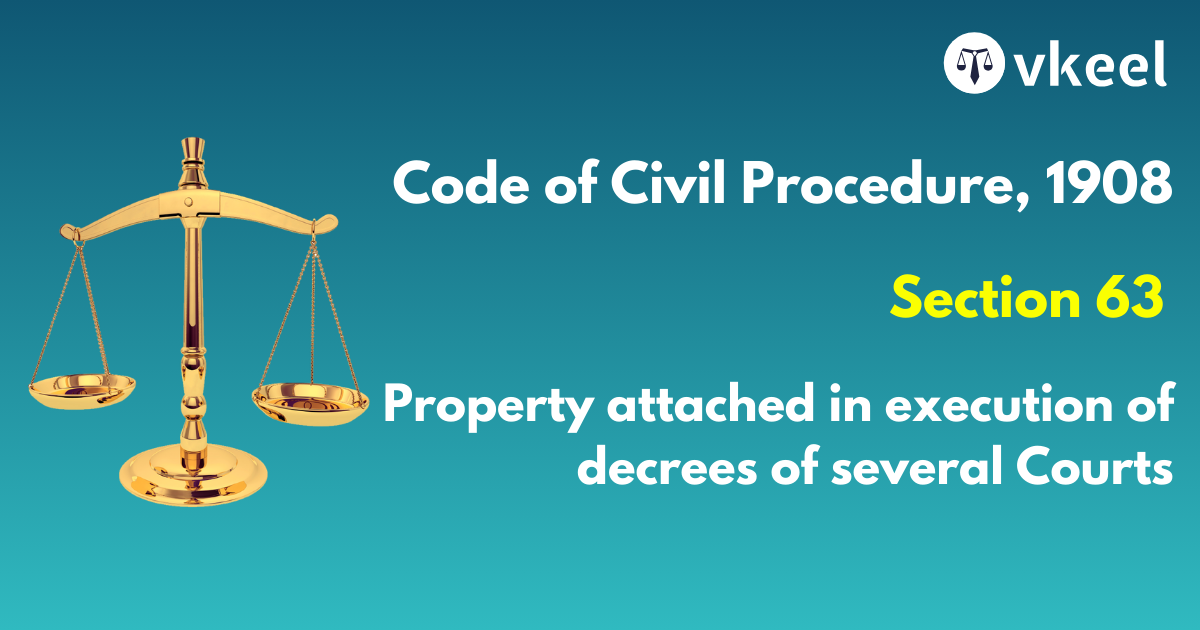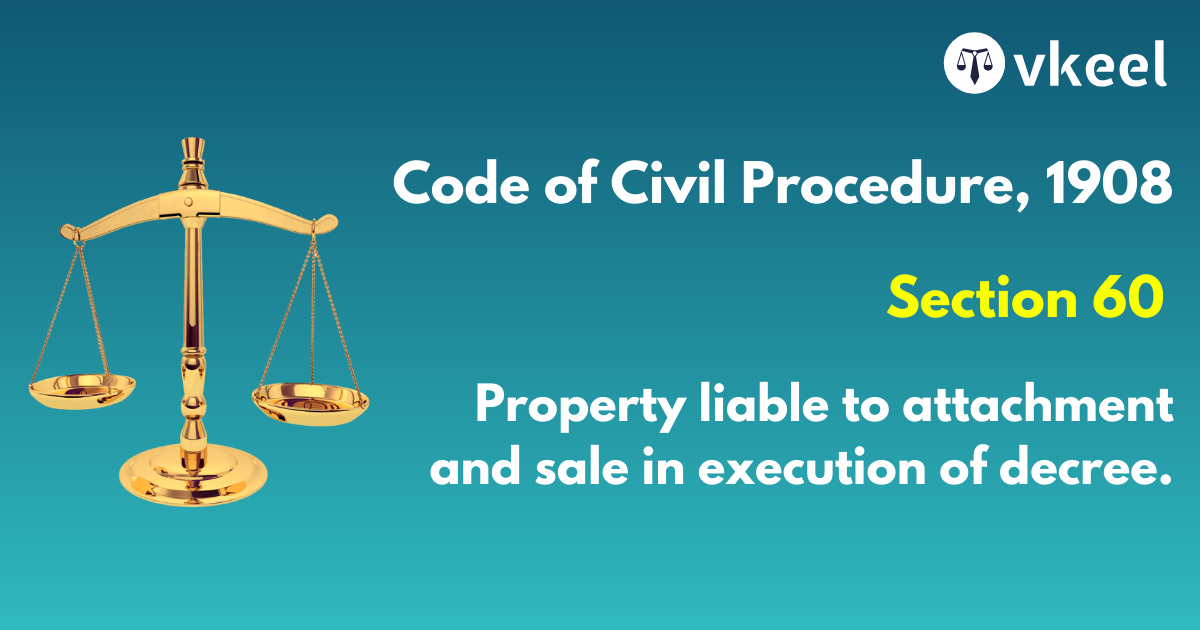Section 61 and 62 of the Code of Civil Procedure, 1908
By Joy Puri
Introduction
The section 61 of the Code of Civil Procedure entails about the exemption that is given to the produce if agriculture.
The section 61 of the Code of Civil Procedure is fundamentally dedicated to the farmers or anybody dealing in agricultural produce.
Furthermore, the section 62 of the Code of Civil Procedure, 1908 entails about the seizure of the property in a dwelling house. The provision articulates that the dwelling house must be occupied by a person as a residence.
The condition further put forth in the Section 62 of the Code of Civil Provision is that the the court of law has and possesses a discretionary power in determining whether the property is eligible for the seizure, thereby balancing the need for the recovery.
The Section 62 of the Code of Civil Procedure also witnessed an amendment in the state of Calcutta. “In sub-section (2) omit the words “unless such dwelling house is in the occupancy of the judgment-debtor and he refuses or in any way prevents access thereto”, after the words “be broken open” and before the words” but when the person”.”
Add the proviso after sub-section (2)—
“Provided that the Court may, after service of such notice as it thinks proper, direct the breaking open of an outer door of a dwelling-house in possession of the judgment-debtor who preve prevents access thereto” Vide Cal. Gaz. Pt. I, dated April 20, 1967.
Section 61 of the Code of Civil Procedure,1908
Partial exemption of agricultural produce.
The State Government 1 *** may, by general or special order published in the Official Gazette, declare that such portion of agricultural produce, or of any class of agricultural produce, as may appear to the State Government to be necessary for the purpose of providing until the next harvest for the due cultivation of the land and for the support of the judgment debtor and his family, shall, in the case of all agriculturists or of any class of agriculturists, be exempted from liability to attachment or sale in execution of a decree.
The words “with the previous sanction of the G.G. in C.” omitted by Act 38 of 1920, s. 2 and the First Schedule Pt 1.
Section 62 of the Code of Civil Procedure,1908
Seizure of property in dwelling-house
(I) No person executing any process under this Code directing or authorizing seizure of movable property shall enter any dwelling-house after sunset and before sunrise.
(2) No outer door of a dwelling-house shall be broken open unless such dwelling-house is in the occupancy of the judgment-debtor and he refuses or in any way prevents access thereto, but when the person executing any such process has duly gained access to any dwelling-house, he may break open the door of any room in which he has reason to believe any such property to be.
(3) Where a room in a dwelling-house is in the actual occupancy of a woman who, according to the customs of the country, does not appear in public, the person executing the process shall give notice to such woman that she is at liberty to withdraw; and, after allowing reasonable time for her to withdraw and giving her reasonable facility for withdrawing, he may enter such room for the purpose of seizing the property, using at the same time every precaution, consistent with these provisions, to prevent its clandestine removal.
Landmark Case Laws
Damodar Vs Iswar, 3 B 89
Section 55 also provides for breaking open of outer door under similar circumstances. A shop or a godown is not a dwelling-house.
Soudamini Vs Jogeswar, 13 WR 329
A bailiff has authority to use force and break open a door or gate.
Tej Vs R, Α 1935 Α 490
In sub-section (3) there is no limitation as in sub-section (2) that the room should be in the occupancy of the debtor.
Kaluram Vs R, A 1934 S 52
Bailiff is the person who is to take action as is necessary under section 62 and not the judgment-creditor.
Conclusion
In its very crux the sections are truly based on the fundamental pillars of transparency and fairness between the authorities, the respective judgement debtor and the judiciary thereof.
Disclaimer:
The information provided in the article is for general informational purposes only, and is not intended to constitute legal advice or to be relied upon as a substitute for legal advice. Furthermore, any information contained in the article is not guaranteed to be current, complete or accurate. If you require legal advice or representation, you should contact an attorney or law firm directly. We are not responsible for any damages resulting from any reliance on the content of this website.











